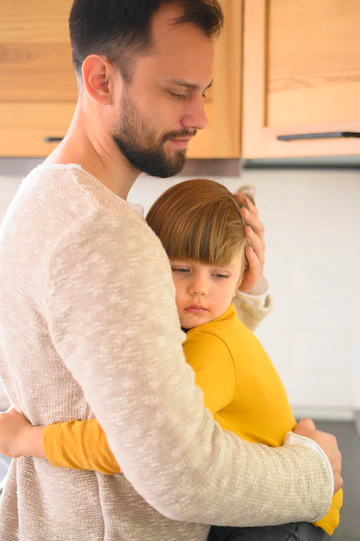Introduction
Conflict is a natural part of human interaction, and how we handle it can significantly impact our relationships and overall well-being. As parents and caregivers, it is essential to be role models for our children, teaching them effective and healthy ways to resolve conflicts. By demonstrating constructive conflict resolution strategies at home, we equip our children with valuable skills they can carry into their future relationships and navigate conflicts in a positive and respectful manner. This article highlights the importance of role-modeling healthy conflict resolution strategies within the family setting.
Create an Open and Safe Environment
The first step in role-modeling healthy conflict resolution is creating an open and safe environment at home. Encourage open communication, active listening, and the sharing of thoughts and feelings without fear of judgment or retaliation. Establishing this safe space allows family members to express their opinions and concerns honestly, fostering a foundation for constructive conflict resolution.
Demonstrate Effective Communication
Effective communication is key to resolving conflicts peacefully. Model healthy communication skills by using “I” statements to express your feelings and concerns instead of resorting to blame or criticism. Encourage active listening by maintaining eye contact, nodding, and paraphrasing to ensure a clear understanding of each other’s perspectives. By demonstrating respectful and empathetic communication, you teach children the importance of listening and expressing themselves assertively without escalating conflicts.
Focus on Problem-Solving
When conflicts arise, emphasize the importance of problem-solving rather than engaging in power struggles or personal attacks. Encourage family members to collaborate and brainstorm solutions together. Teach your children to identify the underlying issues and work towards finding mutually beneficial resolutions. By involving everyone in the process, you promote a sense of shared responsibility and demonstrate that conflicts can be resolved through cooperation and compromise.
Manage Emotions and Anger
Emotions can run high during conflicts, but it is crucial to model healthy emotional regulation and anger management. Demonstrate the importance of taking a step back when emotions escalate, allowing for a moment to calm down and collect your thoughts. Encourage deep breathing exercises or finding a personal coping mechanism that helps regain emotional equilibrium. By showing children how to manage their emotions constructively, you teach them to approach conflicts with a clear and rational mindset.
Encourage Empathy and Perspective-Taking
Empathy and perspective-taking are vital components of conflict resolution. Encourage family members to consider each other’s viewpoints and try to understand the underlying motivations behind their actions. Teach your children to put themselves in the shoes of others, fostering empathy and compassion. By demonstrating empathy in your own interactions, you show children that understanding others’ perspectives can lead to more effective problem-solving and resolution.
Apologize and Forgive
No one is perfect, and conflicts may occasionally result in hurtful words or actions. As role models, it is essential to demonstrate the power of apologizing and forgiving. When you make a mistake, model taking responsibility for your actions and offering sincere apologies. Similarly, when your child or another family member apologizes, model forgiveness and demonstrate that conflicts can be resolved through reconciliation and moving forward.
Seek Mediation When Necessary
In some instances, conflicts within the family may require outside intervention. If you encounter difficulties in resolving conflicts or notice patterns of recurring disputes, consider seeking the help of a professional mediator or family counselor. This demonstrates to your children that seeking assistance is a proactive and constructive step towards resolving conflicts and maintaining healthy relationships.
Conclusion
As parents and caregivers, our behavior has a profound impact on how children perceive and handle conflicts. By role-modeling healthy conflict resolution strategies at home, we empower our children to develop effective communication skills, empathy, and problem-solving abilities. Creating a safe and open environment, emphasizing respectful communication, focusing on problem-solving, managing emotions, and teaching forgiveness are all crucial aspects of role-modeling healthy conflict resolution. By equipping our children with these valuable skills, we set them on a path to building strong and healthy relationships throughout their lives.










